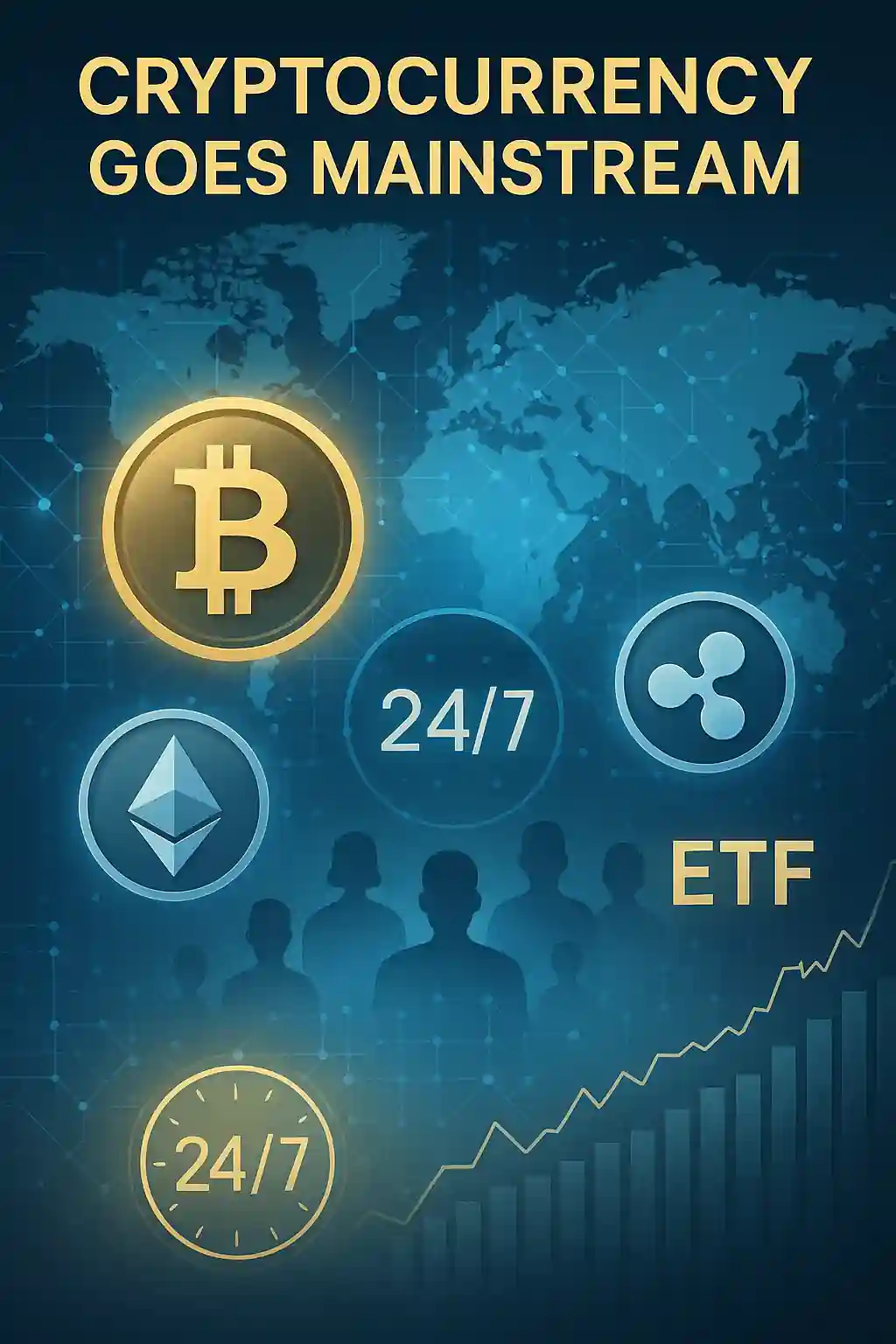Cryptocurrency Goes Mainstream in 2025
In 2025, cryptocurrency is no longer a fringe technology.
It’s now shaping conversations on inflation, global finance, and digital inclusion.
After inflation eroded savings for millions, people are turning to cryptocurrency as a hedge.
Meanwhile, over 1.4 billion adults still lack access to traditional banking.
Central banks are responding—86% are exploring digital currencies.
Wall Street is also on board. Spot-Bitcoin ETFs launched in early 2024 and have already attracted $49 billion.
Cryptocurrency has become a real part of financial life worldwide.
What Is Cryptocurrency?
Cryptocurrency is digital, internet-native money.
It’s not stored in banks or printed as cash—it lives on a public ledger called a blockchain.
When someone transfers crypto, the transaction becomes part of a “block.”
That block is then linked to others, creating an irreversible, secure chain.
Because the blockchain is distributed across thousands of computers, it’s tamper-resistant.
No one—no government, company, or hacker—can change its history alone.
Why Should You Care About Cryptocurrency?
Why does cryptocurrency matter? There are three clear reasons:
- Always on: Unlike banks, crypto networks never close.
You can send money 24/7 and settle it in minutes—even at 2 a.m. - Lower fees: Sending value peer-to-peer often costs less than bank wires or credit cards.
- Borderless: Send money from Brazil to Germany with no intermediaries, currency conversions, or delays.
These features make cryptocurrency a practical tool—not just a speculative asset.
Crypto as a Hedge Against Inflation
With purchasing power declining, many see cryptocurrency as a store of value.
It’s not tied to government policy or interest rates.
While volatile, assets like Bitcoin have become popular alternatives to gold.
And the growing ETF market is making access easier for traditional investors.
Financial Inclusion and Cryptocurrency
A huge share of the global population remains unbanked.
Cryptocurrency offers them a way in—no paperwork, no branches, just internet access.
This makes crypto a strong candidate for driving financial inclusion in developing economies.
Sending remittances, receiving payments, and even saving becomes cheaper and faster.
How to Get Started With Cryptocurrency
Interested in exposure to cryptocurrency? Here are three ways to start:
- Spot ETFs: Like IBIT or ETHA—tradable in a regular brokerage account.
- Crypto exchanges: Platforms like Coinbase or Kraken let you buy Bitcoin and Ethereum directly.
- Wallets: Use a hot wallet (online) or cold wallet (offline) for self-custody.
Remember: With wallets, you’re fully responsible for securing your private keys.
Each method suits different investor profiles, from beginner to expert.
Final Thoughts on Cryptocurrency in 2025
The world is moving fast, and cryptocurrency is at the center of this shift.
It’s more than a speculative play—it’s a tool for hedging, inclusion, and innovation.
From governments to Wall Street to the unbanked, everyone is now paying attention.
And with ETFs, wallets, and exchanges readily available, entering the cryptocurrency space has never been easier.
Whether you’re looking to preserve value, diversify assets, or support decentralization, cryptocurrency belongs in the conversation.




